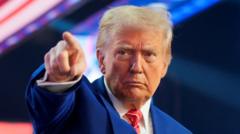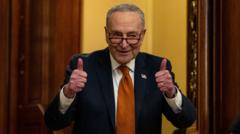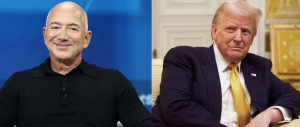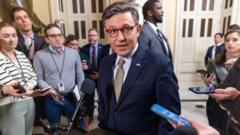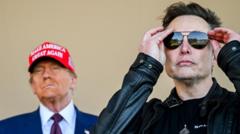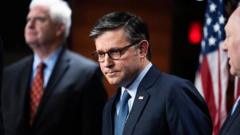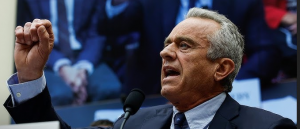Trump's international real estate ventures pose ethical dilemmas, especially as they intersect with critical U.S. foreign policy interests.
**Trump's Business Ventures Raise Ethical Concerns Ahead of Election**

**Trump's Business Ventures Raise Ethical Concerns Ahead of Election**
Former President Donald Trump's business dealings could lead to conflicts of interest should he secure a second term.
In the realm of American politics, concerns are growing over former President Donald Trump's business activities as he campaigns for a second term. Unlike his first presidency, when he made an effort to limit international dealings, this time Trump seems unbound by such constraints, having recently engaged in real estate expansions in strategic countries like Vietnam, Saudi Arabia, and the United Arab Emirates. The exploration of business interests in these nations could generate potential conflicts of interest that experts warn may be difficult to manage, particularly if Trump returns to the White House.
As his ventures intersect with U.S. foreign policy, the potential for ethical conflicts escalates. The nature of Trump’s dealings involves interactions not merely with corporations but also with foreign governments, which complicates matters further; it raises the question of whether American foreign policy might be skewed to advance Trump's business interests. This situation mirrors earlier challenges Trump faced, though the volume and reputation of his current international transactions are notably increased.
On another front, questions also arise surrounding tech mogul Elon Musk's practices of incentivizing voter participation through financial rewards for signing a petition. Observers are concerned that this approach may undermine the fundamental purpose behind petitions and could arguably resemble a form of voting bribery. Musk contends he is only offering incentives for petition signatures and not directly for voter registration. Yet, critics suggest the practice influences voter registration since the petition is limited to registered voters.
The legality of Musk's actions has come under scrutiny, with the Justice Department cautioning him about possible violations of federal law, including a recent lawsuit filed by the Philadelphia district attorney labeling his initiatives as an "unlawful lottery." These developments around influential figures engage broader discussions about ethics in political finance and the potential necessity for clearer regulations on such activities in the modern political landscape.
As his ventures intersect with U.S. foreign policy, the potential for ethical conflicts escalates. The nature of Trump’s dealings involves interactions not merely with corporations but also with foreign governments, which complicates matters further; it raises the question of whether American foreign policy might be skewed to advance Trump's business interests. This situation mirrors earlier challenges Trump faced, though the volume and reputation of his current international transactions are notably increased.
On another front, questions also arise surrounding tech mogul Elon Musk's practices of incentivizing voter participation through financial rewards for signing a petition. Observers are concerned that this approach may undermine the fundamental purpose behind petitions and could arguably resemble a form of voting bribery. Musk contends he is only offering incentives for petition signatures and not directly for voter registration. Yet, critics suggest the practice influences voter registration since the petition is limited to registered voters.
The legality of Musk's actions has come under scrutiny, with the Justice Department cautioning him about possible violations of federal law, including a recent lawsuit filed by the Philadelphia district attorney labeling his initiatives as an "unlawful lottery." These developments around influential figures engage broader discussions about ethics in political finance and the potential necessity for clearer regulations on such activities in the modern political landscape.

